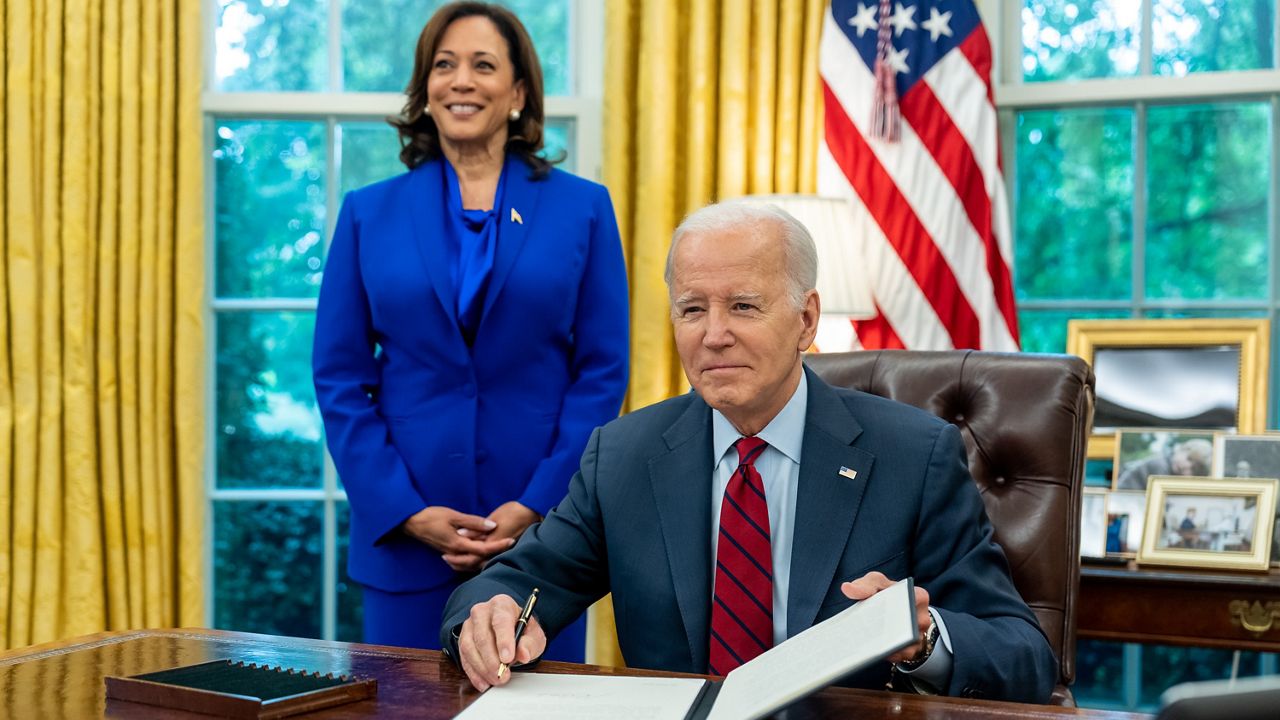Nearly one year removed from the U.S. Supreme Court’s tectonic decision to overturn the case that established the right to abortion, the White House on Friday announced an order to strengthen and protect access to contraception intended to reduce the likelihood of pregnancy.
The executive order signed by President Joe Biden seeks to increase contraceptive options, lower out-of-pocket costs, and make people more aware of ways to obtain contraception, a White House official told reporters.
In an interview with Spectrum News on Friday, Katie Keith, the Senior Advisor for Health Policy to the White House Gender Policy Council, said the order “builds on the progress that has already been made” under the Affordable Care Act.
The landmark health care law generally guarantees coverage of birth control and contraceptive counseling for women at no cost, but does not require plans to cover all FDA-approved forms of contraceptives.
Friday’s executive order says the goals, as it pertains to the Affordable Care Act, is to “ensure coverage of comprehensive contraceptive care, including all contraceptives approved, granted, or cleared by the Food and Drug Administration,” streamline the process to request coverage and improve access to over-the-counter contraception.
“[Friday's] executive order is really a directive to strengthen those parts of the Affordable Care Act to remove any additional barriers that women with private health insurance might face,” Keith said.
It’s the third executive order on reproductive health care access made by the Biden administration since the Supreme Court’s ruling last June in Dobbs v. Jackson Women’s Health Organization, which overturned the 1973 ruling in Roe v. Wade. The first two orders, signed in July and August 2022, also sought to safeguard access to reproductive care services and bolster federal protections for people seeking abortions.
“This executive order underscores the president and vice president’s continued commitment to protecting access to the full spectrum of reproductive health care,” said Assistant to the President and Director of the Gender Policy Council Jen Klein.
“[Friday's] third executive order is really devoted exclusively to contraception and we think that's a really important marker in terms of making sure women have access to the full spectrum of reproductive health care,” said. “It's by no means a substitute for a constitutional right to choose and make decisions about your own body.”
On the whole, the order seeks to improve contraception access and affordability to people with both private health insurance and under Medicaid; to bolster access to contraception across federally-supported health care programs and federal employees, service members and veterans; and to generally promote access to over-the-counter contraception — including emergency contraception.
More specifically, the order directs multiple government agencies, including the Departments of the Treasury, Labor and Health and Human Services to consider guidance that requires insurers to offer expanded contraceptive access under the Affordable Care Act — including more than one contraceptive product per category, to streamline processes to access, and to increase public awareness of new availabilities.
“Contraception is an essential part of reproductive healthcare, which is why contraception — along with abortion — was named in the other two executive orders that the president issued in the weeks after Dobbs,” Klein said. The White House, she said, has had a three-prong strategy to restore reproductive health services: passing legislation on the federal level; at the state level; and by executive action.
Providing protections at the state level has been the great challenge for abortion rights advocates. Since the Dobbs decision, 18 states have effected abortion bans, and six more have bans on hold in the court system, per a White House report.
The White House has announced that, by June 24, it will have hosted five formal working group meetings of state legislators to draft and advance bills in legal abortion states. It has also convened meetings of legislators from states that have banned abortion, as well as states where reproductive rights are being challenged.
“While contraception cannot replace the need for abortion services or fill the gap left by the loss of a constitutional right to choose, it’s an important part of helping ensure that women can make decisions about their own health, lives and families,” Klein said.



